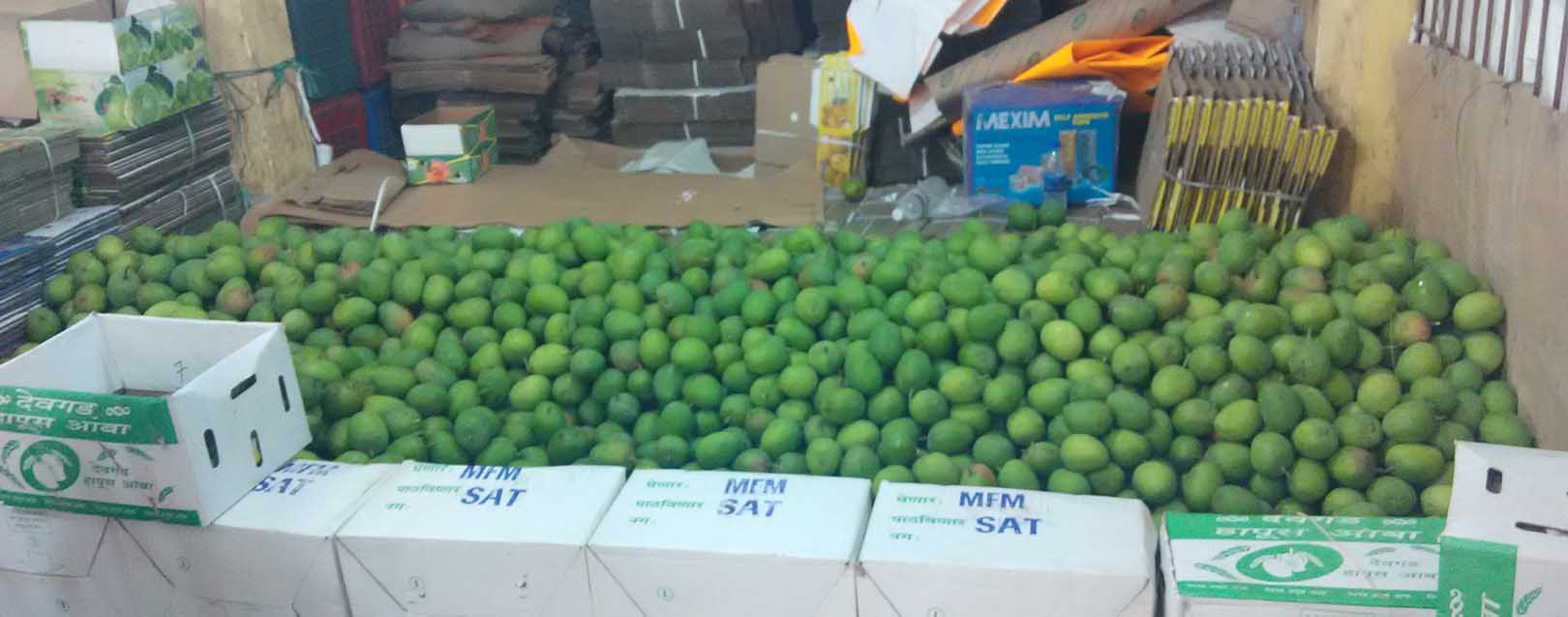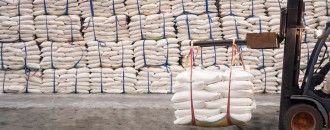
MSAMB all geared to welcome US-FDA inspector with export-quality Hapus and Keshar
Sairaj Iyer| The Dollar Business
Hapus and Keshar on 4th April 2016. The USFDA- APHIS’ inspector will be available in India for a period of one month; during which he is expected to ascertain the import-worthiness of mangoes grown in Maharashtra. Officials close to the development appeared optimistic of winning his trust, thereby succeeding in exporting a big consignment to US.
Sources close MSAMB did not wish to reveal his complete itinerary, but shared that he will be accorded all the honours, and the cabin allotted to him at the MSAMB’s new facility at Vashi-APMC proves MSAMB’s efforts. A 300 sq.ft. cabin, where Malik will be seated, was accessed by a TDB journalist. The cabin was found to be spick & span, replete with a computer, scanner, photocopier, visitor’s lounge and a personal pantry. Sources indicated that his visit is an opportunity worth a good 500-700 MTs mango exports to US.
HAPUS - THE PRIDE OF MAHARASHTRA
MSAMB, an enterprise of the Government of Maharashtra, acts as a single window solution for export of agricultural products. The enterprise has complete traceability in supply chain of vegetables and fruits, especially grapes, mangoes, and pomegranate. It works closely with APEDA (Agricultural and Processed Food Products Export Development Authority) and the Ministry of Commerce.
D.M. Sable, an AGM with the MSAMB, and head of the exports section, averred that Hapus is essentially the pride of Maharashtra. Though MSAMB’s facilities have an output of 1000 MTs, Sable is hopeful of exporting 500-700 MTs of
Hapus.
While explaining the role of Maharashtra in exports of Hapus, he says: “Maharashtra produces close to 13 lakh MT out of India’s total production. In terms of mango cultivation area, we have only 19% cultivatable land, but in terms of productivity, we stand at 6.5% of rest of India.”
The king of fruits, is grown in two varieties in Maharashtra- Hapus (Alphonso) and Keshar, puts Maharashtra at the centre of mango-exports. He explains, “India’s export stood at 55,585 MT in 2012-13, 41,218 MT in 2013-14, while in 2014-15 it stood at 42,908 MT. The Hapus and Keshar varieties contribute to 60-70% exports. While India is the land of mangoes, with many varieties such as Baiganpalli, Langra, Totapuri, etc, these are no match for the Alphonso. The taste, structure and overall difference are easy to differentiate and therefore make our varieties an export-ready product.”
Sable shares that the presence of production facilities, and strong infrastructure are additional reasons for the growing-demand. The MSAMB has facilities to ensure export-worthiness to locations such as EU, US, Germany and Japan. EU exports mandate hot water treatment, while irradiation is compulsory for US-exports. These facilities are made available at MSAMB’s facilities. “Apart from such facilities, we also have a strong air and port network presence in Mumbai,” he adds.
QUALITY OVER QUANTITY
While it has been argued in the media about Pakistani mangoes being exported in large numbers to the US, Sable counters that it is the Quality v/s Quantity debate which is more important. Indian mangoes have found takers in UAE, and GCC, however with the lifting of the EU ban, situation is improving. According to Sable, the lifting of the EU ban has ensured that Indian mangoes enjoy good patronage in countries such as Germany and UK.
He says: “Great measures have been taken to ensure no-repeat of instances such as fruit-flys. We have also launched Mangonet, a website, through which we are creating and imparting awareness on the aspect of quality to mango-growers. Farms following instructions of Mangonet, are certified, and MSMBE procures mango stocks only from such certified orchards. A SOP (standard operating procedure) also has been put to use. The SOP has 10-15 guidelines on usage of pesticides, least mixing of chemicals, cancellation of licenses if chemical traces are found.” MSAMB also has backward linkages with over 600+ farmer communities (registered Farmer producer companies), through which it keeps a close-tab on mango cultivation.
Mango which is available between March, April, May and June, gets the support of organizations such as MSAMB, APEDA for export-worthiness. MSAMB offers the Alphonso in 3 grades, packed in corrugated boxes of size of 32 x 32 x 9 cm, with each box weighing close to 3-4 kilos. Apart from pre-treatment facilities at APMC in Vashi, MSAMB also offers export-facilities at Jamsande, Sindhudurg and Nachane at Ratnagiri.
March 31, 2016 | 06:00pm IST






 to success.
to success.